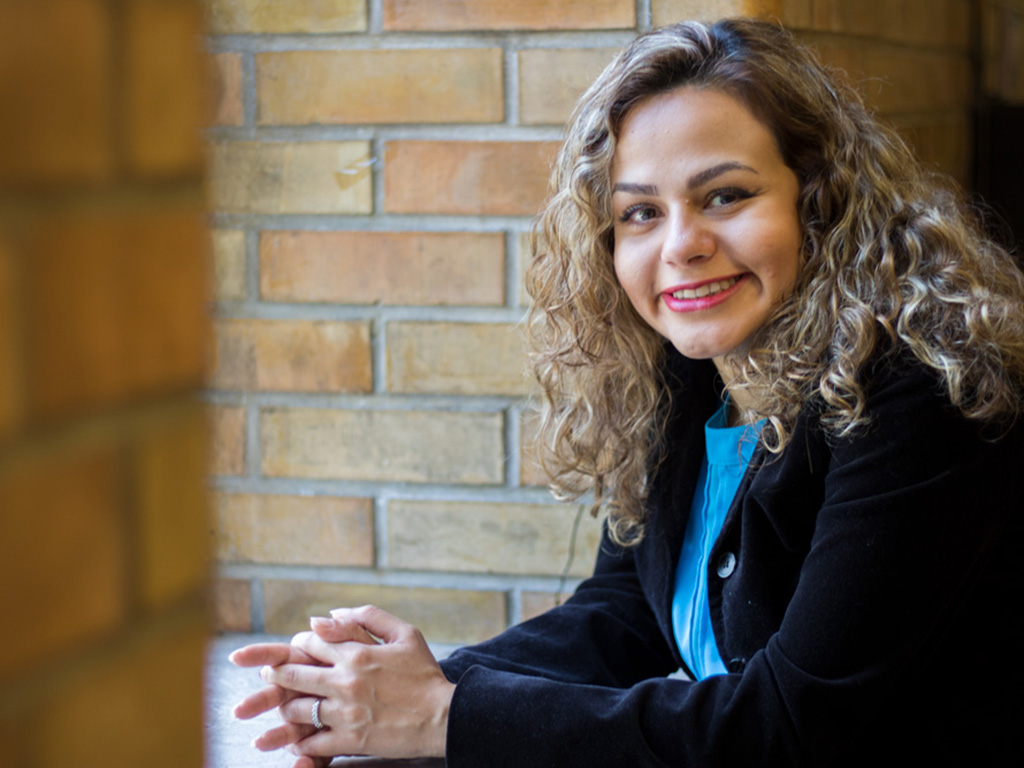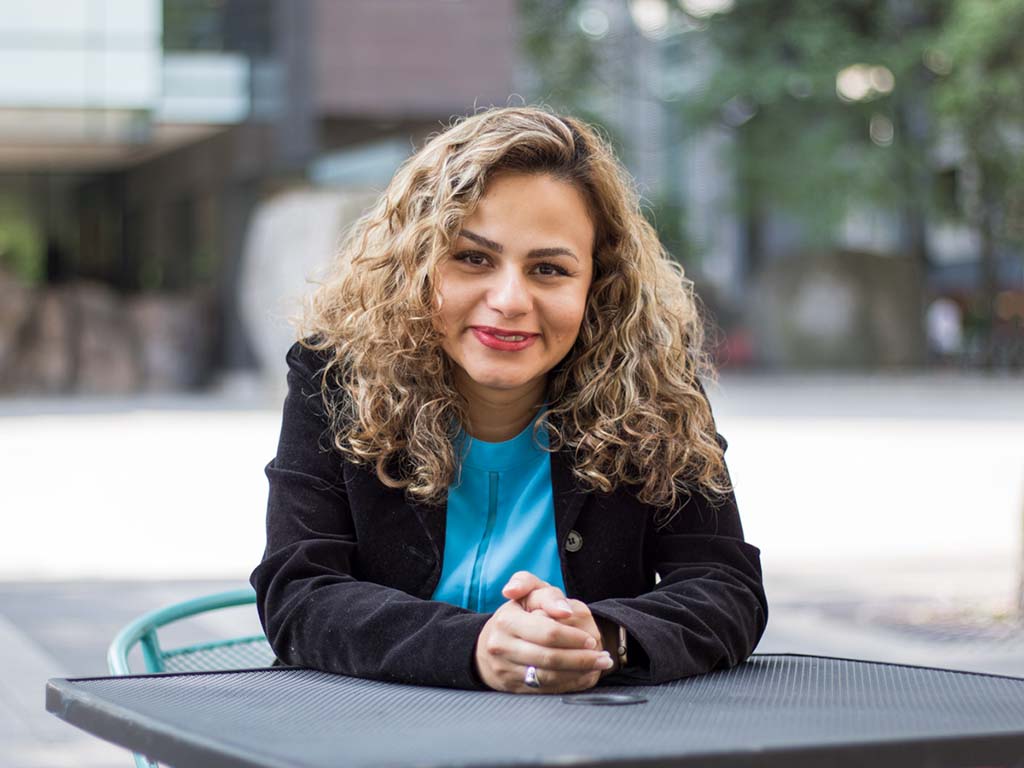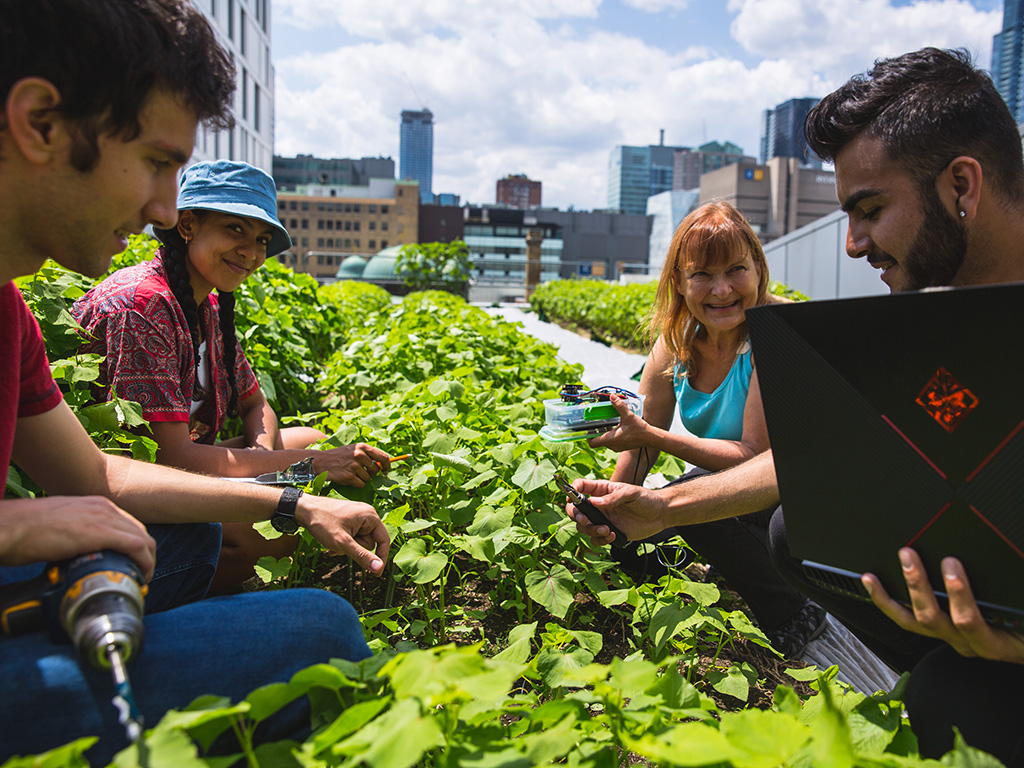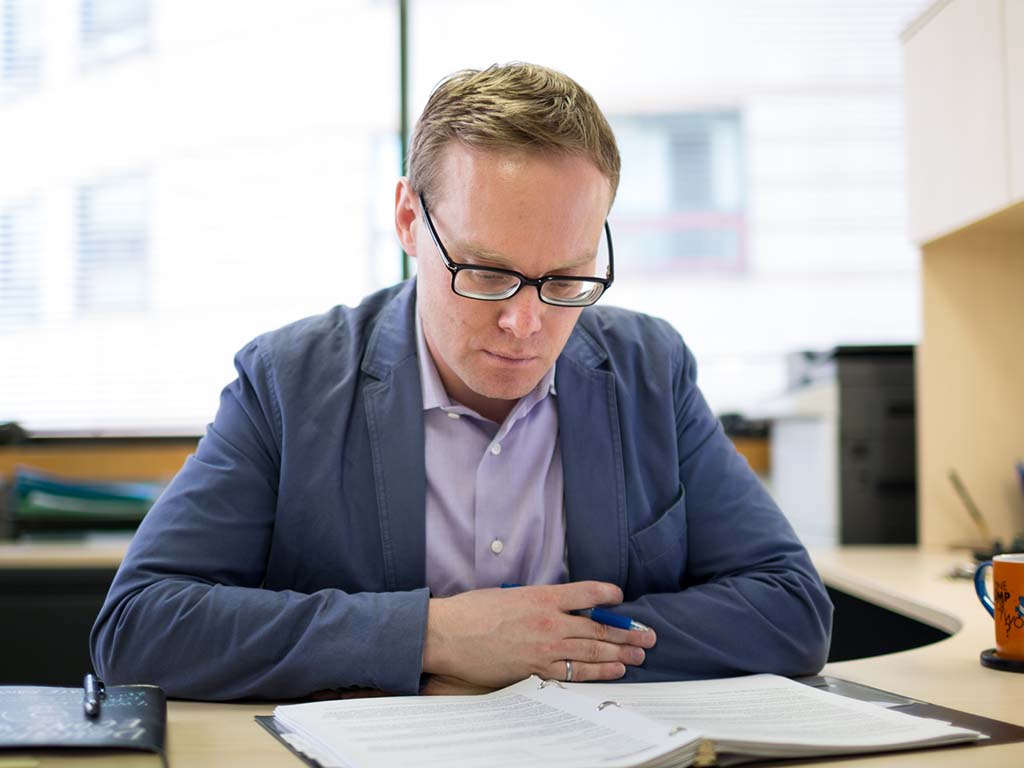Engineering faculty play crucial roles in delivering UNESCO’s Sustainable Development Goals

Hadis Zarrin, a professor in the Department of Chemical Engineering, is among many faculty working toward a more sustainable and equitable future.
According to the United Nations Educational, Scientific and Cultural Organization (UNESCO) (external link, opens in new window) , engineers from diverse disciplines are crucial for improving human welfare, advancing sustainable development and undertaking climate action. In 2021, UNESCO published the report, “Engineering for Sustainable Development: Delivering on the Sustainable Development Goals (SDGs) (external link, opens in new window) ,” to outline and accelerate engineering innovations that can meet the challenges of delivering these goals.
At the university, FEAS faculty engage in collaborative, cross-disciplinary research focussed on fulfilling these SDGs. From supporting good health and decent work to providing clean, affordable energy and water, undertaking climate action and enabling sustainably-grown food, FEAS research is shaping our world for the better.

Hadis Zarrin develops, manufactures and validates nanomaterials with several sustainable applications.
According to Hadis Zarrin, a professor in the Department of Chemical Engineering, “materials are the foundations of everything we see and use in our daily life.” Technologies that address the SDGs require affordable, effective and reliable component materials to be widely integrated and commercially viable.
As Lead Investigator at the university’s Nanoengineering Laboratory for Energy and Environmental Technologies (NLEET), Zarrin and her team design, fabricate and analyze the performance of two-dimensional (2D) multifunctional nanomaterials to meet these goals. “The integration of 2D nanomaterials in technologies that address global concerns offers reliable solutions to improve the device performance and increase the resiliency and sustainability of their components,” said Zarrin.
Zarrin’s research (external link, opens in new window) focuses on technologies that provide clean energy resources, storage and conversion systems (SDG #7 (external link, opens in new window) and #12 (external link, opens in new window) ), multifunctional adsorbents and membranes for water sanitation and environmental remediation (SDG #6 (external link, opens in new window) and #13) (external link) and smart healthcare wearables, textiles and biosensors for healthcare monitoring (SDG #3) (external link, opens in new window) .
“Through the Dean's Research Fund (DRF), FEAS has been very supportive of my research projects on nano-engineering next-generation materials for applications that lead to the fulfillment of the UN’s SDGs,” said Zarrin. For example, during the COVID-19 pandemic, through the support of FEAS, Zarrin’s group designed and developed skin-friendly and biocompatible anti-spread and antiviral coating materials used on various surfaces. This technology helps reduce the spread of viruses.

Kristiina Valter Mai’s work shows that green rooftops supporting food-producing plants deliver multiple SDGs. Photo courtesy of Ryerson Urban Farm
As Lab Director of the Resilience Engineering Lab (REL) (external link, opens in new window) and an electrical, computer and biomedical engineering professor, Kristiina Valter Mai and her students engage in multi-disciplinary research to fulfill several SDGs. For example, Mai’s research into green roof systems looks to deliver sustainable and resilient agricultural practices that model responsible food consumption and production (SDG #12) (external link, opens in new window) , increase food productivity (SDG #2) (external link, opens in new window) and strengthen climate change adaptation capacities (SDG #13) (external link, opens in new window) .
Through collaboration with ZinCo Canada and the Ryerson Urban Farm Living Lab, Mai’s team found that food-producing green roof systems with a water-retaining blue roof sublayer provide greater environmental benefits than other roof configurations. “With careful engineering design to ensure building integrity,” said Mai, “we can use rooftops for local food production, stormwater management through improved evaporation and evapotranspiration (SDG #6) (external link, opens in new window) and improved building insulation (SDG #7) (external link, opens in new window) .” To further these goals, Mai collaborates with The Growcer Inc. to study heat recovery and expand the types of crops grown in remote areas.
Mai’s work also supports optimal health and wellbeing (SDG #3) (external link, opens in new window) through research with REL and iMD Research into wearable devices for human vital sign monitoring and the introduction of new labs such as speech analysis to her courses. According to Mai, “FEAS has provided funding through the Dean’s Pedagogical Innovation Fund, travel grants and graduate student support.”

Cory Searcy is focused on exploring the role of technology in identifying and mitigating modern slavery in supply chains.
One of the targets of SDG #8 (external link, opens in new window) is to take immediate and effective measures to eradicate modern slavery, an umbrella term that includes forced labour, human trafficking, debt bondage and forced marriage. In 2016, the International Labour Organization (ILO) (external link, opens in new window) estimated there were over 40 million people worldwide in modern slavery, and one in four victims were children.
Cory Searcy, a professor in the Department of Mechanical and Industrial Engineering and Vice-Provost & Dean, Yeates School of Graduate Studies, is currently engaged in an international project focused on the role of technology in identifying and mitigating modern slavery in supply chains. “We are also interested in exploring the working conditions of auditors in supply chains with modern slavery,” said Searcy, “and the impact of COVID-19 on increasing vulnerability to modern slavery and its role in deteriorating working conditions.”
Industrial engineers are well-equipped to map supply chains, develop production systems and design remote auditing systems to support traditional in-person auditing methods. “All of these are essential to combatting a problem like modern slavery, which I’ve come to believe is one of the most important problems in supply chain management.” Searcy’s team is currently working on publishing their findings.
“FEAS and my colleagues have always been very supportive of my research,” said Searcy. “Additionally, I’ve been very fortunate to work with excellent graduate students and post-doctoral fellows trained in engineering, which has enriched and supported my work.”